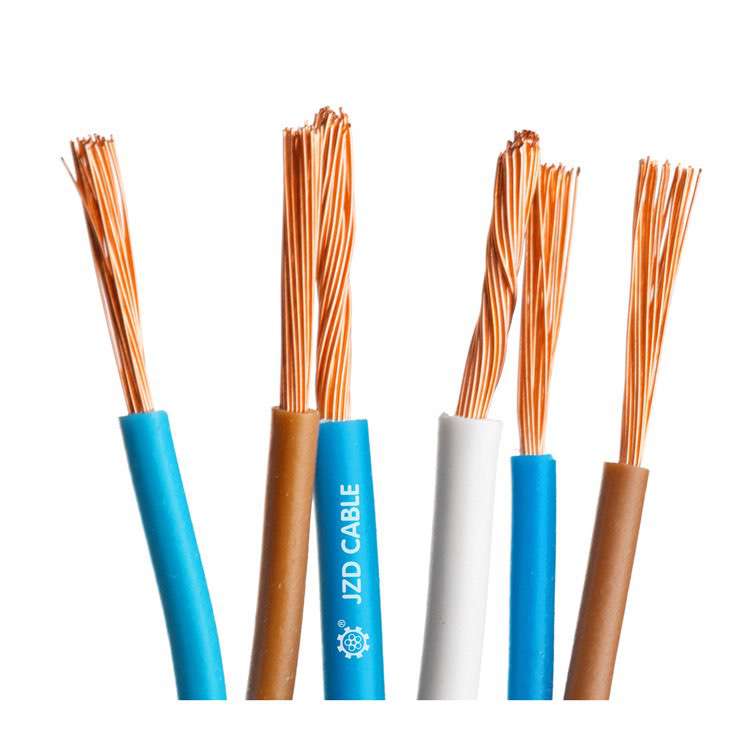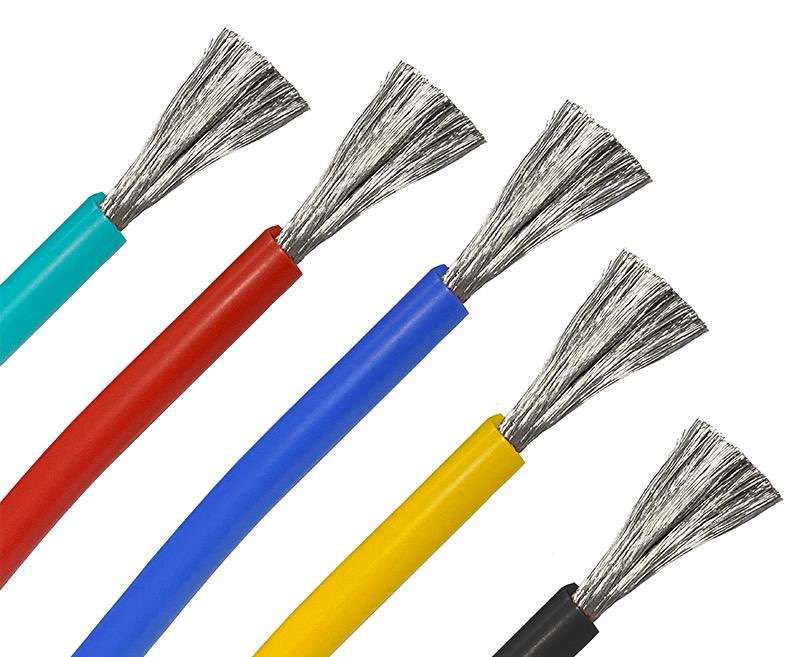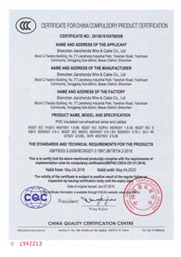 Author: Joey Wan
Author: Joey Wan  November 22,2021
November 22,2021
How to compare the PVC flexible cable and silicone cable? Maybe someone will have such question, especially for the buyer or procurement personnel, because many customers of JZD Wire&Cable had asked similar or same question to our sale personnel, so today this article aim to help you figure it out totally.
Firstly you need know the PVC insulation material and silicone insulation materials respectively, then put them together and find the differences and common points between them.

PVC flexible cable
PVC represents the most common used and applicable insulation materials, nearly all procurement personnel or buyers all over the world can know it , but how was it became that? Let us to know the basic property the PVC material owns.
Polyvinyl chloride (PVC) is a polymer of vinyl chloride monomer (VCM) polymerized by peroxide, azo compounds and other initiators or by free radical polymerization reaction mechanism under the action of light and heat. Vinyl chloride homopolymer and vinyl chloride copolymer are called vinyl chloride resin.
PVC is amorphous structure of white powder, branched degree is small, glass transition temperature 77~90℃, 170℃ or so began to decompose, poor stability of light and heat, above 100℃ or after a long time of sun exposure, will decompose and produce hydrogen chloride, and further automatic catalytic decomposition, causing discoloration, physical and mechanical properties also rapidly decline, In practical application, stabilizer must be added to improve the stability of heat and light.
Industrial production of PVC molecular weight is generally in the range of 50,000 ~ 110,000, has a large polydispersity, molecular weight increased with the reduction of polymerization temperature, no fixed melting point, 80 ~ 85℃ began to soften, 130℃ into viscoelastic state, 160 ~ 180℃ began to change into viscous flow state; Good mechanical properties, tensile strength about 60MPa, impact strength 5 ~ 10kJ/m2; Excellent dielectric properties.
PVC used to be the largest general-purpose plastic in the world and was widely used. It is widely used in building materials, industrial products, daily necessities, floor leather, floor bricks, artificial leather, pipes, , packaging film, bottles, foaming materials, sealing materials, fibers, especially on our cable and wire industry.

Compared with PVC flexible cable, the buyer maybe know less about silicone silicone cable, because according to the market feedback to our JZD Wire&Cable, the silicone cable are more used in European countries, such as the France, Germany, those buyer more liked to purchase those silicone cable, however like the Australia customer, they more like the flat twin and earth cable with SAA certification. Silicone is a porous solid silica material with a large specific area. Silica gel property is amorphous material, is a kind of high activity adsorption material. Silicone has many good performance as the industry materials, however the reason why silicone is more and more used in cable and wire industry mostly is the electrical insulation performance.Electrical insulation performance. Silicone products have good electrical insulation performance, its dielectric loss, voltage resistance, arc resistance, corona resistance, volume resistivity and surface resistivity are among the best insulating materials, and their electrical performance is very little affected by temperature and frequency. It is a stable electrical insulation material, widely used in electronic and electrical industry. In addition to excellent heat resistance, silicone also has excellent water repellency, which is the guarantee of high reliability for the use of electrical equipment under wet conditions.
If you are the buyer or procurement personnel, you need know there aren’t any absolute differences between good and bad, all depends on for which usage your customers are planning buy cable and wire. Not particular application scene, such as the silicone cable can undertake the 200 degree high temperature, on the contrary the PVC flexible only can reach at the 90 degree, if your customer told you he or she will use it for usual and general application, in that time the PVC flexible cable is suitable for you, it’s enough, otherwise you can consider purchasing the silicone cable with more highly price, more high price means you will be trapped into more long negotiation process, however for a more efficient and professional buyer, time means the everything, because your customer always pushes you again and again. On the other hand, both the PVC flexible cable and the silicone cable , you need ask for your supplier or manufacturer to provide the relative authoritative certification, such as the UL certified, VDE certified and so on.
For a buyer with lots of experiences, we can judge and know the differences according to outer appearance. First of all, silicone cable is a little more elastic than PVC flexible cable, and then it is easy to distinguish between the smell of PVC burning and the smell of silicone burning. Another is the silicone is more tougher compared to the PVC flexible cable, of course the manufacturer or supplier usually will mark the name of cable and wire on the surface, so you don’t worry too much about this.
JZD Wire&Cable is a professional manufacturer and developer with 25 years experiences, especially on our PVC flexible cable and silicone cable, which have exported to many countries, such as Australia, The Unite State, Peru and so on, welcome to contact us for quoting within 2 hours.
